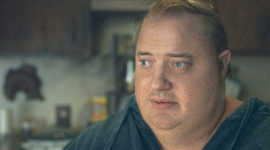
A Movie Synopsis: What it Is and How to Write One
Everything you need to know about writing an all-important movie synopsis that helps you get your projects off the ground.
In the filmmaking world, sometimes a single sentence can be the difference between green-lighting a multi-million dollar blockbuster or sending a project into development hell. And, while we’re all not writing scripts for mega-franchises, there’s something to be said about the general importance of a well-thought-out, carefully crafted movie synopsis.
Okay, so what is a movie synopsis actually? What purpose does it serve and — most importantly — what makes a good one stand out? These are the questions we’re here to answer! So, before you send your next script off to Marvel Studios for consideration, let’s explore the basics and best practices for writing a proper movie synopsis.
What Is a Movie Synopsis?
First off, when defining a “movie synopsis,” we’re usually talking in terms of scripts and screenwriting, as that’s where most of the conversations regarding a film project begin. From this perspective, a movie synopsis is a short write-up that summarizes what a screenplay is all about. It includes a snapshot of what the overall plot structure and story for the film will be.
A movie synopsis (or film synopsis) is usually around one page long. Along with providing all the relevant plot and story information, it’s really intended to be a document that “sells” the project. A movie synopsis will often be seen or heard by studio executives, talent agents, managers, or actors who are considering if they should go in on making the film.
What to Include in a Movie Synopsis

Make sure your movie synopsis is readable, unique, and stands out. Image by Pixelbliss.
So, diving into how to write your movie synopsis and what to actually include, it really comes down to hard rules and open-ended guidelines. Every movie synopsis should be formulaic and easy to read, while also being wholly unique and interesting. It really comes down to finding the right balance between the two. From a formulaic standpoint, here are the essentials:
- Include a header (title, screenwriter’s name, email, or contact info.).
- Include a logline.
- Write in the third person and present tense.
From there, you’re free to summarize as you’d like with focus and creativity. However, while you certainly want to make your movie synopsis unique so that it stands out, there are some additional unwritten rules you should consider abiding by:
- Clearly define the lead characters.
- Introduce the central conflict of the story.
- Focus on a three-act structure.
- Include a solid ending explanation.
- Proofread for grammar and readability.
Tips for Writing a Good Movie Synopsis

With screenwriting, you want to have key story elements that “pop” off the page. Image by VGstockstudio.
Those are just the basics, though. So, what can you do to take things a step further with your movie synopsis? I’m a big fan of acclaimed screenwriter John August, who’s a wonderful resource for anyone researching the ins and outs of writing a movie synopsis. He’s been very forthcoming about his screenwriting success after penning major films like Big Fish, Charlie and the Chocolate Factory, and the live-action remake of Aladdin. If you’d like to check out some actual movie synopsis examples, as well as plenty of other real-life case studies, check out his library.
Once you have the basics covered and are following the general rules, the goal is to make your movie synopsis “pop” off the page with the key elements to its story. These tips can help make that happen:
- Try to hook your reader right away with the biggest and best parts of the story.
- Don’t get caught up in unnecessary or superfluous information.
- Focus on paragraph flow and the narrative beats.
- Define your main characters, but don’t waste much time on minor ones.
- Understand your film’s genre and how this story fits with or against it.
- Hammer things home with a strong ending that leaves no questions unanswered.
Along with the above, I’d also advise any aspiring screenwriters or filmmakers to rely on their own instincts, as well as always focus on your voice. A strong voice can overcome any of the dos or don’ts that you’ll find online. Remember, a movie synopsis isn’t just any story that you’re selling—it’s your story.
For more screenwriting tips, tricks, and resources, check out these additional articles below.
- Free Script Writing Software Options for the Low-Budget Filmmaker
- Learn How to Speak Filmmaking: Formatting the Screenplay
- 5 Important Tools Every Screenwriter Should Have
- Tips for Rewriting Your Screenplay Without Starting Completely Over
- How to Overcome the 5 Biggest Obstacles to Writing Your Screenplay
Cover image by VGstockstudio.





